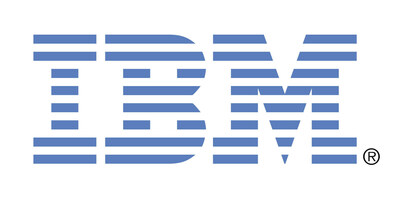Two-thirds of surveyed enterprises in EMEA report significant productivity gains from AI, finds new IBM study
Rhea-AI Summary
IBM (NYSE: IBM) released a September 2025 EMEA survey showing widespread AI-driven productivity gains: 66% of senior leaders reported significant improvements and 41% expect AI ROI in under a year.
Large enterprises report higher adoption (72%) versus SMEs (55%). Key impact areas include software development and IT (32%), customer service (32%), and procurement (27%). Security, privacy and IT complexity were top barriers (68%). Respondents prioritized transparency, interoperability and choice (~85%).
Positive
- 66% of leaders report significant AI productivity gains
- 41% expect AI ROI in under one year
- 72% of large enterprises report AI-driven productivity gains
- 92% expect AI agents to deliver ROI within two years
Negative
- Only 55% of SMEs report AI productivity gains
- Public sector: 55% report significant AI productivity improvements
- 68% cite security, privacy and trust as top barrier
- 68% cite IT complexity integrating AI with legacy systems
News Market Reaction
On the day this news was published, IBM declined 0.17%, reflecting a mild negative market reaction.
Data tracked by StockTitan Argus on the day of publication.
66% of responding senior leaders say AI has already driven significant productivity improvements across their organization41% of respondents anticipate returns on AI investments in under a year72% of large enterprises surveyed (1,001 – 5,000 employees) report AI-driven productivity gains compared with55% of SMEs- Around
85% said interoperability, choice and transparency of AI systems is important
"The Race for ROI," a new IBM report produced in partnership with Censuswide, surveyed 3,500 senior executives across ten countries, and reveals
In addition, approximately one in five respondents said their organization has already realized ROI goals from AI-driven productivity initiatives, with a further
Further productivity benefits are expected from the introduction of AI Agents, with
According to the study, business areas achieving the biggest AI-driven productivity gains are software development and IT (
However, the gains are not evenly distributed across all types of organizations. While
AI Transforming Business Models
Across EMEA, the data shows that leaders are increasingly using AI to enable strategic business transformation. Of the
Strikingly, around a third of respondents are already using AI to change their operations in ways such as accelerating innovation timelines (
Nearly half of all senior leaders surveyed (
Ana Paula Assis, Senior Vice President and Chair, IBM EMEA and Growth Markets, said:
"The true value of AI for business goes far beyond individual productivity – it's about strategic transformation. Our research suggests that, while we are still in the foothills of AI adoption, enterprises in EMEA are seeing meaningful productivity gains from infusing AI into their operations, with many redesigning their business models.
"On the question of technology autonomy, the response was emphatic: enterprises want to use technology on their terms, with transparency, choice and flexibility baked in."
Prioritizing open systems, interoperability and choice
The study found that openness, interoperability, and choice are critical priorities for all types of organizations adopting AI.
A further
Overcoming risk and complexity
While the findings suggest companies are progressing towards greater ROI on AI, it also identified concerns about security, privacy and ethics – including the risk of data breaches and the trustworthiness of AI – as the top barrier to scaling successful AI pilots, cited by
To accelerate ROI from AI, the report outlines five priorities for enterprise leaders:
- Establish an effective operating model for AI: Establishing a common and universally understood approach for AI transformation across the organization, such as a federated or hub-and-spoke model, along with clear ownership, is crucial for delivering return on investment.
- Cultivate AI literacy and a culture of innovation, from the Board to entry-level: In the coming years, AI tools will become increasingly embedded in every interaction. Knowledge of how and why to use these tools across teams and functions will help the organisation to adapt and thrive as AI capabilities and the opportunities they create continue to evolve.
- Get comfortable with uncertainty and rapid change: The world is moving into an era of AI everywhere. AI tools will be embedded and procured into every interaction layer we have - whether it is search engines, the device people interact with or the companies they engage with. Success in this era means developing a culture that embraces change and uncertainty, and enables rapid, purposeful innovation.
- Understand the risks around AI deployment: As with any technology, AI must be applied with caution and a detailed understanding of regulatory, reputational and operational risks. Enterprises should apply AI governance tooling to monitor and mitigate potential risks, such as unauthorized data sharing and unwanted bias.
- Establish a cross company "AI Board" to mitigate risk: The AI Board's role is to define ethical principles and risk appetite and review higher risk AI use cases before they are implemented. This, combined with increased AI literacy, will give business units a high level of autonomy to implement AI use cases with confidence.
To discover more about how AI is helping unlock opportunities for growth and innovation in EMEA, including across major industry sectors, download the 'The Race for ROI" report here.
Research Methodology
This report is based on a survey conducted by IBM in partnership with Censuswide in September 2025, involving over 3,500 senior business leaders (aged 25+). This included 500 respondents in each of the following markets;
Respondents were drawn from organizations which currently use AI tools, representing a range of industries, including Finance, Public Sector, Retail, Telecoms, and Energy.
Quotas were set to ensure an even split of responses from organizations of different sizes based on number of employees. The categories were split as follows: under 250 employees, 250 – 1,000 employees, 1,001 – 5,000 employees, over 5,000 employees.
About IBM
IBM is a leading provider of global hybrid cloud and AI, and consulting expertise. We help clients in more than 175 countries capitalize on insights from their data, streamline business processes, reduce costs and gain the competitive edge in their industries. Thousands of governments and corporate entities in critical infrastructure areas such as financial services, telecommunications and healthcare rely on IBM's hybrid cloud platform and Red Hat OpenShift to affect their digital transformations quickly, efficiently and securely. IBM's breakthrough innovations in AI, quantum computing, industry-specific cloud solutions and consulting deliver open and flexible options to our clients. All of this is backed by IBM's long-standing commitment to trust, transparency, responsibility, inclusivity and service. Learn more at IBM.com.
Media Contact
Gregor Hastings
IBM EMEA Communications
gregor.hastings@ibm.com
![]() View original content to download multimedia:https://www.prnewswire.com/news-releases/two-thirds-of-surveyed-enterprises-in-emea-report-significant-productivity-gains-from-ai-finds-new-ibm-study-302595929.html
View original content to download multimedia:https://www.prnewswire.com/news-releases/two-thirds-of-surveyed-enterprises-in-emea-report-significant-productivity-gains-from-ai-finds-new-ibm-study-302595929.html
SOURCE IBM







